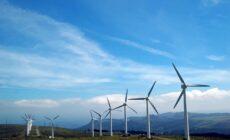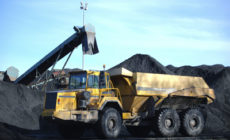Environmental & Social Standards
For nearly 40 years, Friends of the Earth has been a pioneer in advocating for better and stronger sustainable finance policies. In promoting robust environmental, social, and climate standards and practices, we focus our attention on multilateral financial institutions, commercial banks and policy banks. In the past, Friends of the Earth was one of the first organizations in the 1980s to call on the World Bank to develop environmental and social safeguards for their investments, which later on became seen as one of the first set of standards for protecting people and the environment among multilateral development banks. In the 2000s, Friends of the Earth played a major role in pressuring Wall Street banks to take responsibility for their environmental impacts, which in turn contributed to the establishment of the Equator Principles, a risk management framework designed to ensure a minimum standard which banks could use to determine, assess, and manage environmental and social risk in project finance.
Today, we continue to call on banks to ensure that their investments lead to positive rather than negative environmental, social, and climate outcomes. These include traditional institutions, such as the World Bank, and newer players like the Asian Infrastructure Investment Bank. And with the announcement of China’s Going Out Policy in 2001 and the Belt and Road Initiative in 2013, both of which called on Chinese actors to invest overseas, we also monitor the environmental, social, and climate standards and impacts of Chinese banks investing abroad.
In the past years, a number of Chinese banks have quickly become the largest banks in the world, vastly surpassing the scope and scale of traditional Western financiers. At the same time, some of the world’s most progressive sustainable finance policies have arisen from China and emerging markets, which has in turn fueled more and more international interest in greening financial instruments and institutions. However, there remains a significant gap between policy and practice in both the Chinese and international banking sector, and so we work to contribute research, policy recommendations, and analysis towards closing that gap while fortifying environmental and social banking standards.

The international statement captures growing international concern regarding how Chinese development finance can do its part in successfully addressing the COVID-19 crisis without exacerbating environmental, social, climate, biodiversity, or other risks.

Last week, the US and China announced a “common vision” for tackling climate change, an announcement that was intended to generate political momentum in the run-up to the United Nation’s Framework Convention on Climate Change talks in Paris this December. One of the most notable portions of China’s commitment is…
-
Learn MoreRed Lines for a Green Future: Exploring Exclusionary Approaches to Protecting Biodiversity and People
-
Learn MoreFinancing for Biodiverse Futures? Key Considerations for Financial Institutions to Stop and Reverse Biodiversity Loss
-
Learn MoreIconic, Transboundary Ecosystems
